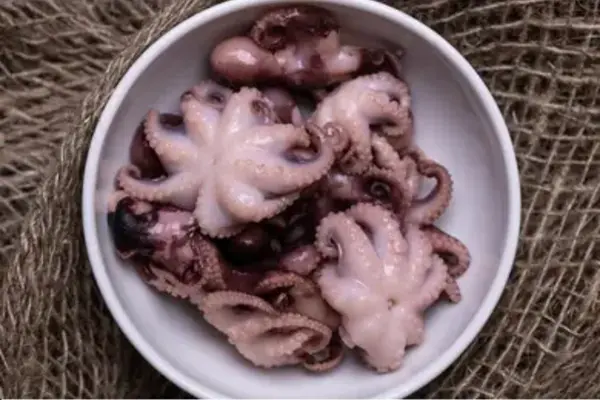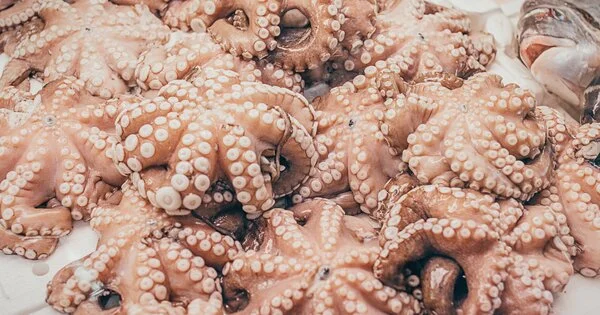Small-scale octopus fisheries can indeed be a sustainable source of nutrition for tropical coastal communities. Octopus is a highly nutritious food that is rich in protein, iron, and other essential vitamins and minerals. The low-impact fishing methods used in small-scale octopus fisheries can help to preserve the health of the marine environment and ensure the long-term sustainability of the species. Additionally, these small-scale fisheries often provide a vital source of income and employment for local communities, helping to support the economic development of these areas.
Researchers say that undernourished coastal communities in the tropics, where children’s growth can be stunted due to a lack of micronutrients, can get the vitamins and minerals they need from sustainable small-scale octopus fisheries.
The study, led by Cambridge scientists and published today in Nature Food, demonstrates that tropical small-scale octopus fisheries provide a sustainable source of food and income to communities facing food insecurity, where undernourishment can exceed 40% and stunting in children under five is common.
Because of the high micronutrient density of octopus, which includes vitamin B12, copper, iron, and selenium, human populations only need a small amount to supplement a diet primarily comprised of staple plant crops. A small amount of production in a tropical small-scale octopus fishery can supply micronutrients to a large number of people.
These small fisheries also provide an income and a way of life for many women, who benefit economically as a result. Small-scale octopus fisheries are centered on local communities, which may provide them with greater resilience to market pressures and other disruptions to global food supply and trade.
Dr. David Willer
Octopuses’ rapid growth and adaptability to environmental change can also aid in sustainable production, and catch methods in fisheries – primarily hand techniques, small-scale lines, pots, and traps – are less environmentally damaging than those used in large industrial fishing.
Dr. David Willer, lead author, from the Department of Zoology at the University of Cambridge and a Fellow at Murray Edwards College, said: “Worldwide, nearly half of the people’s calories come from just three crops — rice, wheat, and maize — which are high energy, but relatively low in key nutrients. Just a small serving of something very, very micronutrient rich, like octopus, can fill critical nutritional gaps. And, of course, if you get better nutrition as a child you’re much more physically and mentally prepared for later life, which can lead to better jobs, better employment, and better social development.

“These small fisheries also provide an income and a way of life for many women, who benefit economically as a result. Small-scale octopus fisheries are centered on local communities, which may provide them with greater resilience to market pressures and other disruptions to global food supply and trade.”
Small-scale fisheries, in all sectors, currently provide more than two-thirds of all fish and seafood destined for human consumption worldwide and employ more than 90% of all capture fishers. Women make up 47% of the workforce in these fisheries.
Based on a global review of data from global seafood databases and published literature, the researchers discovered that tropical small-scale octopus fisheries use relatively low-impact techniques in many cases, and when combined with local and national management approaches, can provide a more sustainable source of seafood. Periodic fishery closures, size restrictions, and licenses have all been successful approaches. The need for knowledge transfer of fishing gears is also critical in order to spread the message about fish sustainability, food security, and economic stability.
However, it is important to note that the sustainability of small-scale octopus fisheries depends on careful management and monitoring. Overfishing and destructive fishing practices can lead to declines in octopus populations and negatively impact the health of the marine environment. Therefore, it is essential to implement measures to ensure the sustainable management of octopus populations and the marine ecosystems they depend on.





